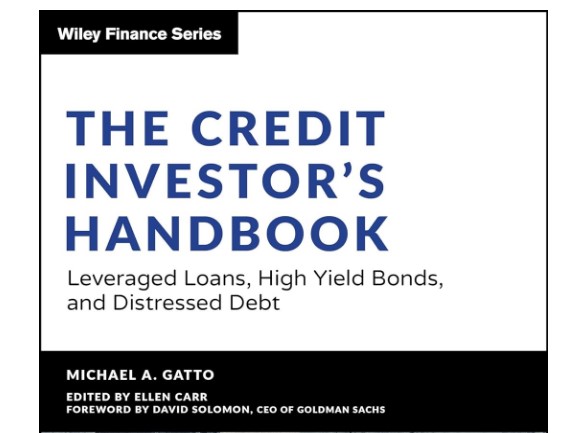

Welcome to FIASI
05/01/24 | Sustainable Finance Conference

Sustainable Finance in Fixed Income 2024: The State of Sustainable Finance
The current state of sustainable finance will be explored during a day-long conference with a particular focus on fixed income. Through a series of talks and panel discussions, the following areas will be explored:
- The state of sustainable investing 2024 and outlook.
- Sustainable bonds, social bonds and sustainability linked bonds: Current trends and developments.
- Investment company rulemaking and corporate climate disclosures, including the recently issued SEC final rule on climate-related disclosures.
- Exploring the role of private investments in the energy transition, risks and opportunities, and how asset owners and investors can balance these risks.
- Current divestiture trends through the exploration of the latest research on the topic, impacts, and insights into how this movement is evolving.
During the conference, the winners of the 4th Annual Student Research Competition on Sustainable Finance in Fixed Income will be announced. The competition is sponsored by FIASI and the Fordham University’s Center for Research in Contemporary Finance and the O’Shea Center for Credit Analysis.
When: Wednesday, May 1st, 2024
Where: Fordham University Gabelli School of Business, McNally Auditorium
Address: 140 West 62nd Street, New York, NY
Conference Agenda & Registration
SPONSORSHIP OPPORTUNITIES, PLEASE CONTACT LAUREN NAUSER:
05/30/24 | The Credit Investor's Handbook
Michael Gatto , CFA will speak about his recent book:
, CFA will speak about his recent book:
Michael's seven-step credit analysis process will prepare you for a career in credit investing at the top buy-side and sell-side firms on Wall Street by teaching you the technical skills needed to invest in the debt markets. Whether you are analyzing a loan origination in the private debt market, a new issue of a broadly syndicated loan (BSL), a high-yield bond (HY), or a secondary trade, the comprehensive knowledge gained from this book will equip you to make well-founded investment recommendations. Additionally, an entire section devoted to distressed debt investing incorporates a practitioner's perspective on the nuances of bankruptcy and restructurings to develop strategies to profit from opportunities in this opaque market. In clear, straightforward terms accessible to the layperson, Michael explains strategies pursued by distressed companies such as J. Crew and Serta that have led to creditor-on-creditor violence, giving you an insider’s perspective on some of the least understood transactions in the distressed arena.
You will:
- Gain In-Depth Knowledge: Understand the complexities of credit markets, from trading dynamics to historical credit cycles, allowing you to identify debt investment opportunities―and avoid pitfalls.
- Master the Analytical Framework: Learn Michael's seven-step process for analyzing credit investments, including qualitative industry and business analysis, financial statement analysis, forecasting, corporate valuation, relative value analysis, and debt structuring.
- Learn How to Write an Investment Recommendation: Review real-life credit memos to understand how analysts translate this framework into recommendations that drive investment decisions at the top credit funds.
- Discover Key Concepts and Terminology: leveraged buyout financings (LBOs), trading levels (price, yields, and spreads), shorting, and credit default swaps.
Navigate Distressed Debt: Explore the strategies and nuances of distressed debt investing, including bankruptcy, subordination, creditor-on-creditor violence, and high-profile case studies from the past three decades of Chapter 11 restructurings. - This book caters to finance majors pursuing investing careers, credit analysts seeking to enhance their skills, and seasoned professionals aiming to expand their expertise. Professors, researchers, lawyers, and advisors servicing the credit industry will also find immense value in this comprehensive guide.
As always, members' participation is free. Non-member fee is $60.00
- When: Thursday, May 30, 2024 at 6pm
- Where: Cornell Club | 6 East 44th Street | New York City
- Time:
- 6:00 pm to 6:30 pm - Refreshments and networking
- 6:30 pm to 7:15 pm - Presentation
- 7:15 pm to 7:30 pm - Q & A
- 7:30 pm to 8:00 pm - Refreshments and networking
Register Online
If you are a current member of FIASI, please
using the button in the upper right corner of the screen to access the member discount rate.
New to FIASI?
The Fixed Income Analysts Society is dedicated to the education of its membership and the fixed income community at large. FIASI serves its members by sponsoring frequent, high quality educational programs and workshops covering topics of current interest to research analysts, portfolio managers, and other fixed income professionals. FIASI also sponsors an annual Hall of Fame ceremony to recognize lifetime achievements of outstanding practitioners in the advancement of fixed income security and portfolio analysis.
The Fixed Income Analysts Society is comprised of fixed income professionals who value the opportunity to learn, network and discuss important fixed income topics with colleagues across the industry. We draw from all disciplines – buy side, sell side, intermediaries, quants and academics – and all sectors – credit, rates, economics, securitized products, foreign exchange, emerging markets, municipal finance and commodities. Seasoned professionals as well as those new to the industry will reap the benefits of FIASI membership.
Join Now
Learn More
View promotional video (short)
View promotional video (long)
Corporate Sustaining Members
Newsletter Sign-up
Job Postings
Below find recent job postings. You must be a member and logged in to the site in order to view the job details.
Moody's Credit Outlook
Moody's Credit Outlook report is available here. Published Monday and Thursday mornings, Moody's Credit Outlook provides you with the credit implications of current events.

















